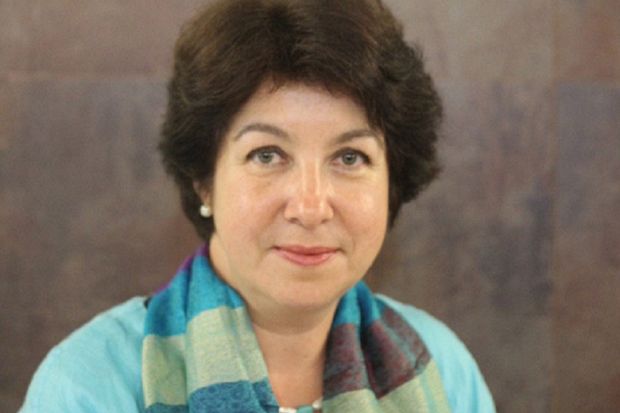The practice of recruiting senior academic staff at Asian universities internally works against the promotion of women to top positions, according to the dean of an institution that aims to prepare female students to become future leaders.
Rosie Bateson, who last month was appointed dean of faculty and academic affairs at the Asian University for Women (AUW), said that some Asian universities elect scholars from within the institution to take on senior roles rather than appointing faculty through an external recruitment process. She said that these positions are decided by a “predominantly male group of academics” and are “likely to result in the election of another male colleague”.
Speaking to Times Higher Education, Dr Bateson added that opportunities for female scholars would increase if institutions across the continent were “more open towards equal opportunity” and provided more leadership training for women.
“The perception is that the vice-chancellor position tends to be held by male colleagues,” she said.
An analysis of THE World University Rankings data, published last year, found that just 14 per cent of the universities ranked in the top 200 in the world are led by women, and not one of these institutions is in Asia.
However, Dr Bateson said that the “number of women in leadership positions across higher education in Asia is rising”.
“I see quite a number of female academic colleagues at conferences, so their presence is felt and visible,” she said.
AUW launched in Chittagong, Bangladesh, in 2008 as an American-style liberal arts college that grants full scholarships to “low-income, high-potential women” across the continent. It offers undergraduate degrees in four subjects: economics, public health, environmental science, and philosophy, politics and economics.
Dr Bateson said that there has been a “significant boom in the whole higher education sector” across Asia in recent years, but one of the advantages of AUW is that students come from countries across the continent: 40 per cent of the students are from Bangladesh, and the rest come from other areas of Asia, she said.
“There is no national predominance. An international student at AUW is not one of a kind,” she said.
“So in the classroom, there is a multiplicity of opinion, of experience, of approach of how students battle a particular problem. I cannot think of many other institutions in Asia that offer this kind of learning environment.”
Dr Bateson added that while some students in Asia can be perceived as “shy”, she was “pleasantly surprised” on her arrival at the campus last month to discover that the students were “very proactive, very alert and engaged”.
“This is one particular characteristic about the environment of this institution which sets it apart from other excellent universities across East Asia,” she said.
She said that she met two students from Pakistan who had travelled 20 hours by bus from their home town to the country’s capital to catch a flight to Dhaka, where they then boarded another aeroplane to Chittagong.
“From the very first moment of their AUW experience, they learn to become very active agents and they learn to take things into their hands, to make things happen,” she said.
“This is simply the experiential learning of leadership – being proactive, being entrepreneurial, having the courage to take certain steps and even take certain risks.”
POSTSCRIPT:
Print headline: Internal promotion at universities in Asia ‘works against women’
Register to continue
Why register?
- Registration is free and only takes a moment
- Once registered, you can read 3 articles a month
- Sign up for our newsletter
Subscribe
Or subscribe for unlimited access to:
- Unlimited access to news, views, insights & reviews
- Digital editions
- Digital access to THE’s university and college rankings analysis
Already registered or a current subscriber? Login








